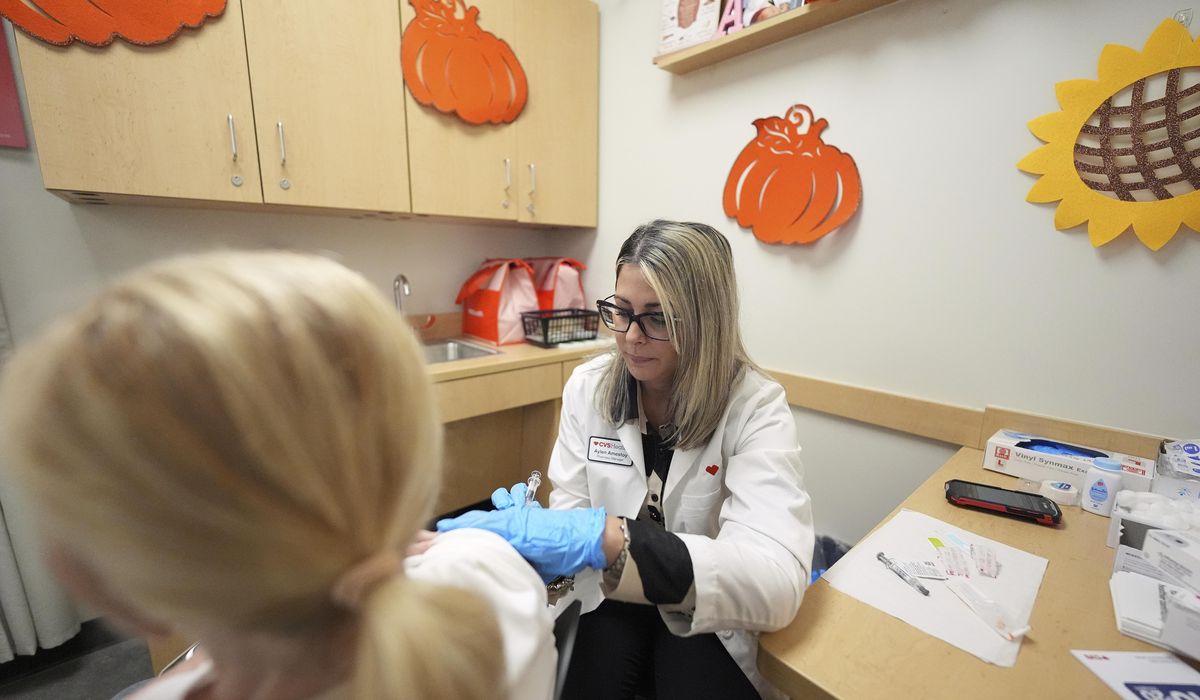


The Centers for Disease Control and Prevention will no longer recommend COVID-19 vaccines for adults, including those over age 65.
The new immunization schedules follow recommendations from the recently appointed CDC Advisory Committee on Immunization Practices, which advised ending years of the federal government’s push for all adults to get COVID-19 shots and boosters.
The advisory committee’s 17 members, all appointed by former President Biden, were replaced in June with new members picked by Health and Human Services Secretary Robert F. Kennedy Jr.
Mr. Kennedy said the new members “will prioritize public health and evidence-based medicine,” and “will no longer function as a rubber stamp for industry profit-taking agendas.”
The latest recommendations will be updated on Tuesday and call for individuals to make decisions with their health care professionals about whether to get a COVID-19 vaccine.
The CDC recommendation emphasizes the risk versus benefit for COVID-19 boosters for people under 65, rather than recommending that everyone get a booster shot.
“CDC’s 2022 blanket recommendation for perpetual COVID-19 boosters deterred health care providers from talking about the risks and benefits of vaccination for the individual patient or parent. That changes today,” said Jim O’Neill, acting Director of the CDC and deputy secretary of Health and Human Services.
The CDC is also changing its recommendation for the chickenpox vaccine, which is administered to children up to age 12.
Toddlers should no longer receive the chickenpox vaccine in a shot that combines it with measles, mumps and rubella vaccinations, the CDC said.
Citing an increased risk of febrile seizures from the combined shot, the CDC advised toddlers to get a standalone shot.
The change follows the CDC’s Immunization Safety Office report last month that found the combined vaccine doubles the risk of febrile seizures in healthy toddlers aged 12-23 months within seven to 10 days after receiving the shot.
The chicken pox vaccination was licensed in the United States beginning in 1995 and was combined with the MMR vaccine in 2005.
The benefits of the combined shot are listed as “increases vaccine coverage rates” and “increases vaccine compliance.”
The new recommendations for the COVID-19 shot call for weighing the risks and benefits of the vaccine for those under 65. Individuals who would benefit the most from a booster shot are those with underlying health issues that put them at risk for severe cases of COVID-19, the CDC said. For healthy individuals under 65, the risks may outweigh the benefits.
Previously, the CDC had recommended all adults receive COVID-19 booster shots.
The CDC website, which is not updated, currently recommends the shot “for most adults 18 and older.”
The move to scale back COVID-19 shots follows questions about the vaccine’s safety and efficacy.
In September, Pfizer listed myocarditis, which is a swelling of the heart, as “a recognized risk,” following administration of its mRNA vaccine, particularly in young males.
The pharmaceutical giant said its vaccine, according to CDC data, “continued to provide additional protection” against COVID-19 between 2023 and 2025, lowering hospitalization rates, critical illnesses and deaths “even though effectiveness waned over time.”
The Food and Drug Administration approved pharmaceutical companies’ marketing for COVID-19 vaccines for people with risk factors, as well as for those aged 65 and older.
For more information, visit The Washington Times COVID-19 resource page.
• Susan Ferrechio can be reached at sferrechio@washingtontimes.com.
